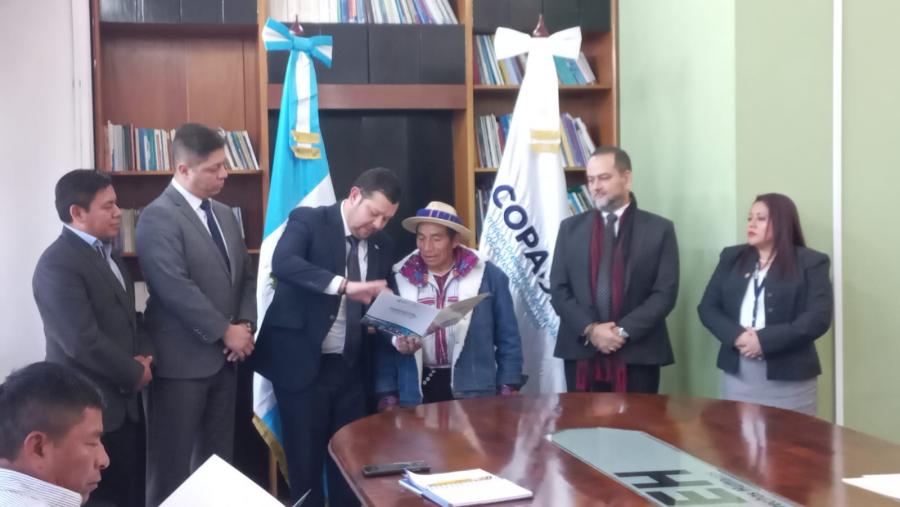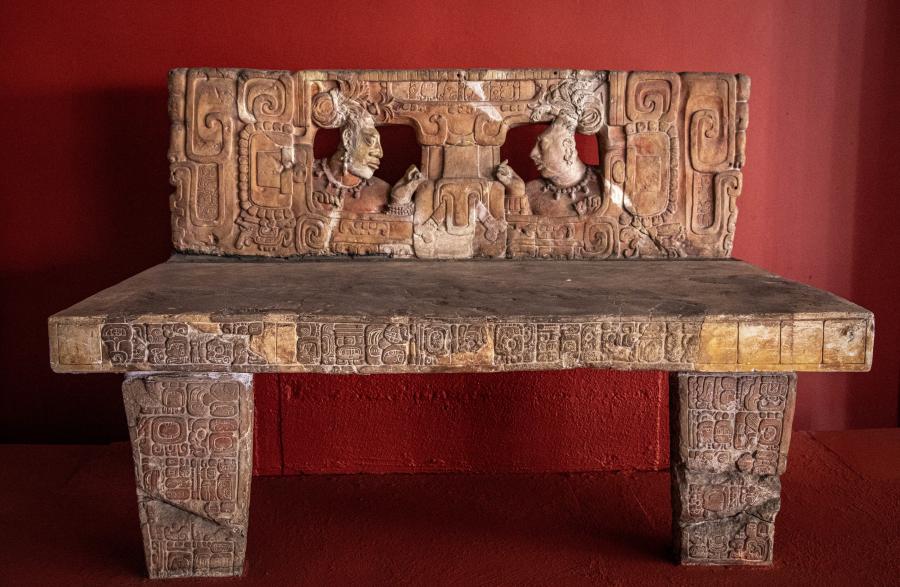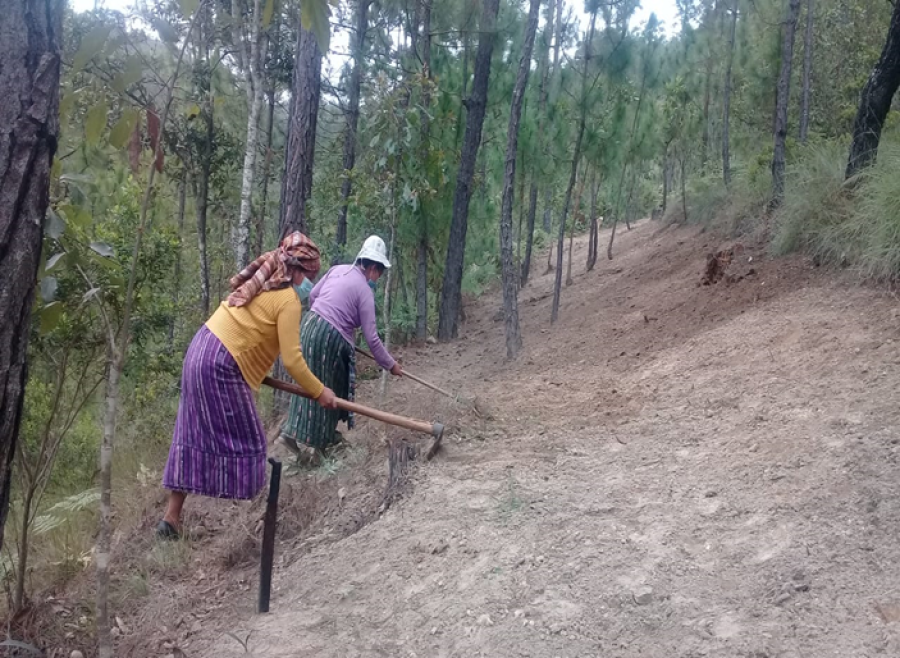
Gender as a concept was developed by the feminist anthropologist Gayle Rubin in 1975 and became a category of analysis of feminist theory to explain how inequality between men and women is a cultural construction that takes shape through gender roles. From feminist theory, gender as a category of feminist analysis has been important to highlight and understand how the structure of patriarchal domination has legitimized relations of domination of men over women, and the subordination of women to men. Feminist analyses also see gender as a useful category to understand that women and men weave our family and social lives under various systems of domination, among which patriarchy stands out.
Patriarchy is a system of male domination that is manifested and institutionalized through the exercise of power by men over women and children in all institutions that structure and organize the life of societies, and Pueblos Originarios (Original Peoples) are not immune from this. (I prefer to use the term Pueblos Originarios rather than Indigenous Peoples, because Indigenous is a category imposed during the process of invasion and colonization by Europeans.) One of the characteristics of patriarchal domination is the concept of the supposed superiority of men and the supposed inferiority of women. The patriarchy has used this justification to legitimize masculine domination over the feminine. One of the forms of this domination is the imposition of gender roles.
In daily life, gender is materialized through gender roles, which have to do with what is established and valued about how men and women should act, behave, and project themselves in the family and in society. Feminist studies and reflections from different social disciplines, based on the reconstruction of human history, have shown that gender roles are neither natural nor static, and therefore can be questioned and modified so that women and men have opportunities to develop as full persons without discrimination or violence.
Some of the ways that gender roles present and are part of the norms of relationship dynamics between Indigenous women and men are:
- Women work to support their families, but they are not taken into account in the same way as men when it comes to making important decisions within the families.
- Although women work outside the home or have their own businesses, they are also expected to be the primary caretakers of their children and parents, among others, a situation that is not expected of men.
- In social and political organizations, it is usually men who hold positions of community responsibility to make social or political decisions, and it is thought that women do not have the capacity to do so.
- When it comes to distributing inheritance, even in the best case, women are given less than men, because it is thought that men are the “heads” of their families. In the worst case scenario, women are not considered as heirs.
- In order for women to earn respect, they are required to do the housework, marry and become mothers, work outside of the home, and be obedient. Men do not have nearly as many demands placed on them.
- One of the strong gender norms for both men and women is to marry and have children to comply with the heteropatriarchal mandate.
- Women are restricted in their freedom to have friends, travel, and study, while men are given more freedom in these aspects of their lives.
I clarify that these examples do not occur only in Indigenous Peoples because they are a reality throughout Guatemalan society. I mention Indigenous communities in response to the objective of this space, to share my opinion on how gender is materialized in the lives of men and women within the family, community, and society of these Peoples.

Fortunately, a great majority of Indigenous women have been, and are, protagonists in the daily and systemic struggles of questioning the gender roles imposed by the logic of the patriarchal system. It is thanks to these struggles that the new generations of women belonging to Indigenous Peoples have been able to gradually transgress these imposed gender roles.
At present, in the light of more spaces for reflection and awareness of the human rights that concern women and men, the voices that fight and question the patriarchal mandate that denies the existence of other ways of being men and women outside of the norm of compulsory heterosexuality are gaining relevance. Compulsory heterosexuality is a patriarchal mandate that has been imposed as “natural” to legitimize loving relationships only between people of opposite sexes, and that punishes, sanctions, prohibits, and despises loving relationships between people of the same sex, or those who fall outside of either gender norm.
This obligatory heteronormativity is being questioned by Indigenous Peoples in Guatemala, by both women and men. In the reality of the dynamics of these communities, there are other ways of being that transcend this mandate. Among Indigenous Peoples, there are women who live and identify as lesbians, bisexuals, Trans, or Queer, and also men who live and identify as gay, Trans, Queer, or bisexual. Depending on our political and life experiences, not all of us have advanced in questioning the imposed gender roles. I have observed that it is still a challenge to become aware that living a sexuality outside of compulsory heterosexuality also implies stopping reproducing gender roles in our social and couple relationships.
From my experience, transgressing compulsory heterosexuality implies a profound questioning of the prevailing patriarchal order, and consequently a questioning and reversing in our daily lives the norms that have naturalized gender roles. In particular, it is to reverse the logic of domination/subordination and of the unequal exercise of power that has justified the naturalization of forms of violent and controlling relationships, and to question the continuation of practices and ideas that tend to overvalue the masculine and undervalue the feminine as we have been taught by patriarchy.
Gender as a category of analysis of unequal power relations between heterosexual men and women is useful to analyze to what extent we are blindly reproducing unequal power relations in the ways of living our sexualities outside of compulsory heterosexuality. Taking into account that our lives are traversed by different systems of domination— not only by patriarchy—it is important to recognize that there are other categories besides gender that allow us to understand our reality from an integrated perspective. Daring to make these reflections can help us to advance in our daily and political struggles, and above all, to build our lives and recreate them in the collective from a more humane and respectful dimension.
— Dorotea Gómez Grijalva (Maya K’iche’) is a lesbian feminist, anthropologist, and social worker. She has a master’s degree in Social Anthropology from the State University of Campinas, Sao Paulo, Brazil. One of her recent writings, a lesbian feminist perspective, is the article “My Body Is a Political Territory.” Much of her work focuses on violence, exclusion, and the political participation of women and Indigenous Peoples in Guatemala.



